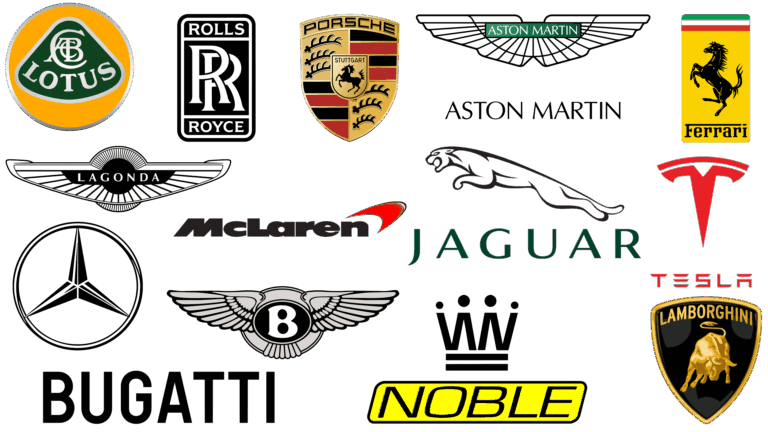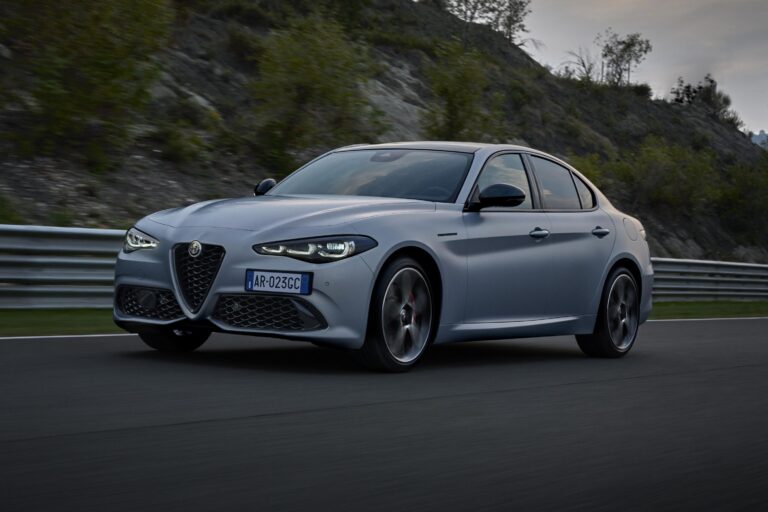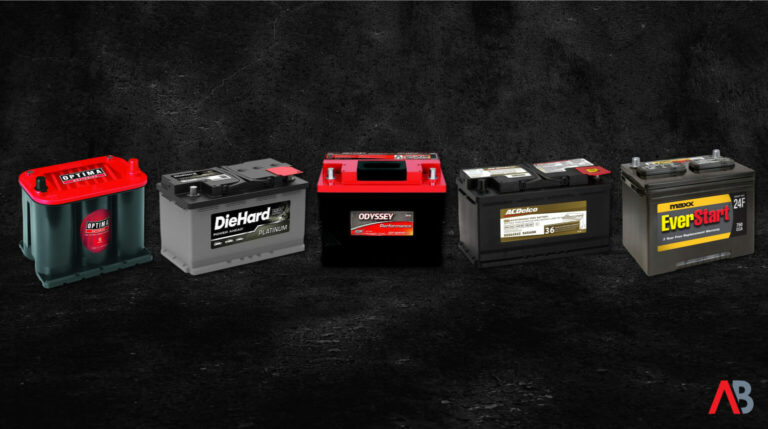Asian Luxury Car Brands: A Comprehensive Guide to Refined Excellence
Asian Luxury Car Brands: A Comprehensive Guide to Refined Excellence cars.truckstrend.com
For decades, the global luxury automotive landscape was predominantly defined by a handful of prestigious European marques. Synonymous with heritage, performance, and exquisite craftsmanship, brands like Mercedes-Benz, BMW, and Audi held an undeniable stronghold. However, the dawn of the late 20th century marked the emergence of a new force, one that would redefine luxury by prioritizing unparalleled reliability, innovative technology, and a distinct approach to customer satisfaction: Asian luxury car brands.
These brands, primarily from Japan and South Korea, and more recently from China, did not merely imitate their European counterparts. Instead, they forged their own path, offering a compelling blend of meticulous engineering, serene comfort, and often, a superior value proposition. Today, Asian luxury car brands stand as formidable contenders, challenging traditional perceptions and offering discerning buyers a sophisticated alternative that embodies modern luxury. This comprehensive guide delves into the world of Asian luxury automobiles, exploring their evolution, key players, defining characteristics, and what makes them a compelling choice in today’s competitive market.
Asian Luxury Car Brands: A Comprehensive Guide to Refined Excellence
The Genesis of Asian Luxury: Challenging the Status Quo
The story of Asian luxury cars truly begins in the late 1980s. Japanese automakers, having already established a global reputation for building reliable and fuel-efficient mass-market vehicles, set their sights on the premium segment. They recognized a gap in the market for luxury cars that offered the same high quality and dependability as their mainstream models, combined with a focus on advanced technology and a customer experience that bordered on anticipatory service.
- Lexus (Toyota – 1989): Spearheaded by Toyota, Lexus was the first and arguably most successful foray into luxury. Its debut model, the LS 400, shocked the industry with its whisper-quiet cabin, impeccable build quality, and smooth V8 engine, all offered at a significantly lower price than its German rivals. Lexus quickly became the benchmark for reliability and customer service, embodying the Japanese concept of "Omotenashi" – anticipating and fulfilling a guest’s needs without being intrusive.
- Acura (Honda – 1986): Honda was actually the first to launch a luxury division in the U.S. with Acura. Initially focusing on performance-oriented luxury, Acura introduced models like the Legend and the iconic NSX supercar, showcasing Honda’s engineering prowess and commitment to driving dynamics.
- Infiniti (Nissan – 1989): Nissan followed suit with Infiniti, aiming for a more design-centric and performance-driven approach to luxury. While perhaps not as overtly successful as Lexus initially, Infiniti carved out a niche with its distinctive styling and emphasis on driver engagement.
These early pioneers laid the groundwork, proving that luxury could be delivered with a different ethos – one centered on precision, dependability, and an unwavering commitment to the owner’s peace of mind.
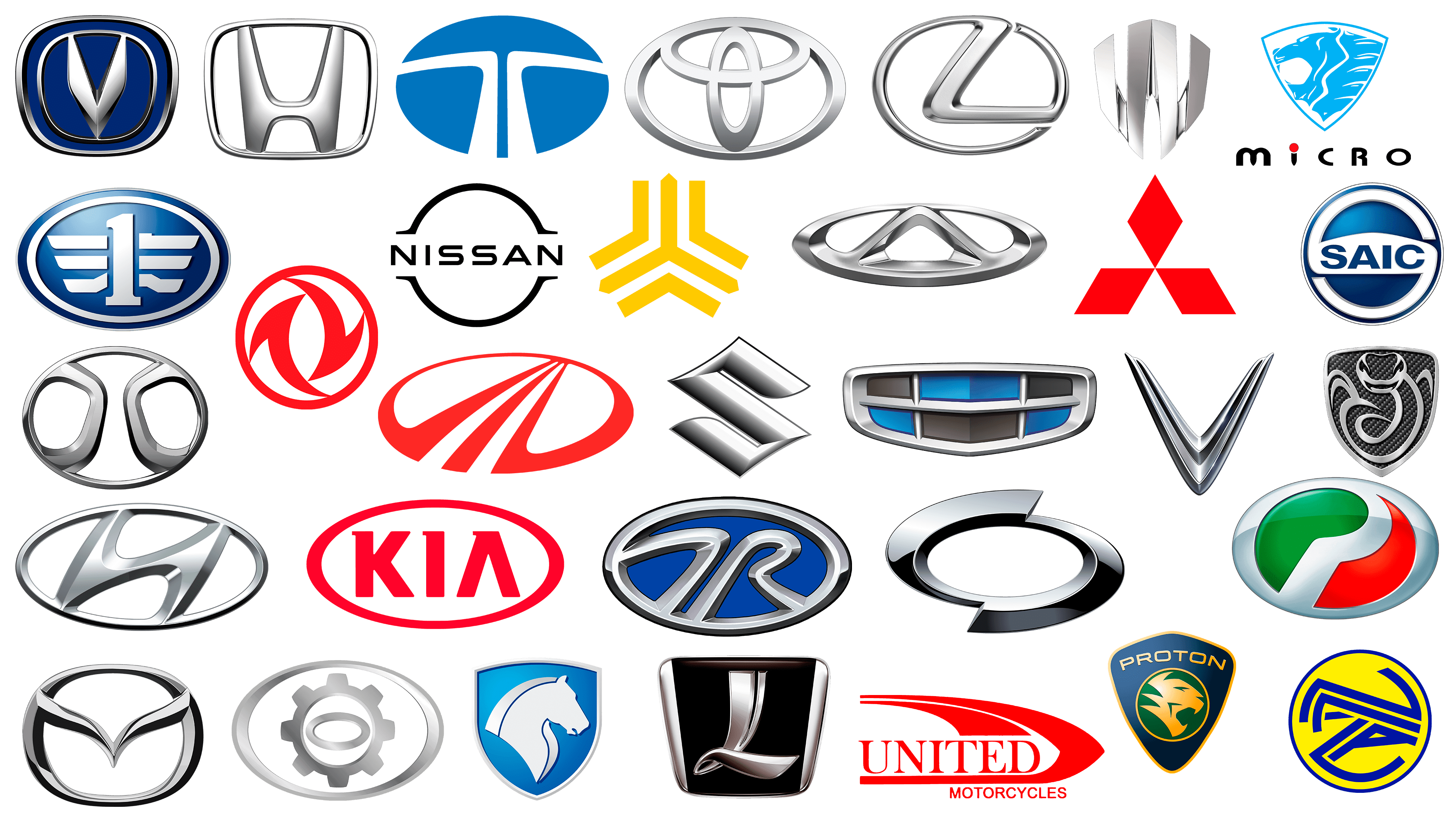
Key Players and Their Distinctive Approaches
The landscape of Asian luxury has evolved beyond its Japanese origins, with South Korea and, more recently, China making significant inroads.
The Established Japanese Powerhouses
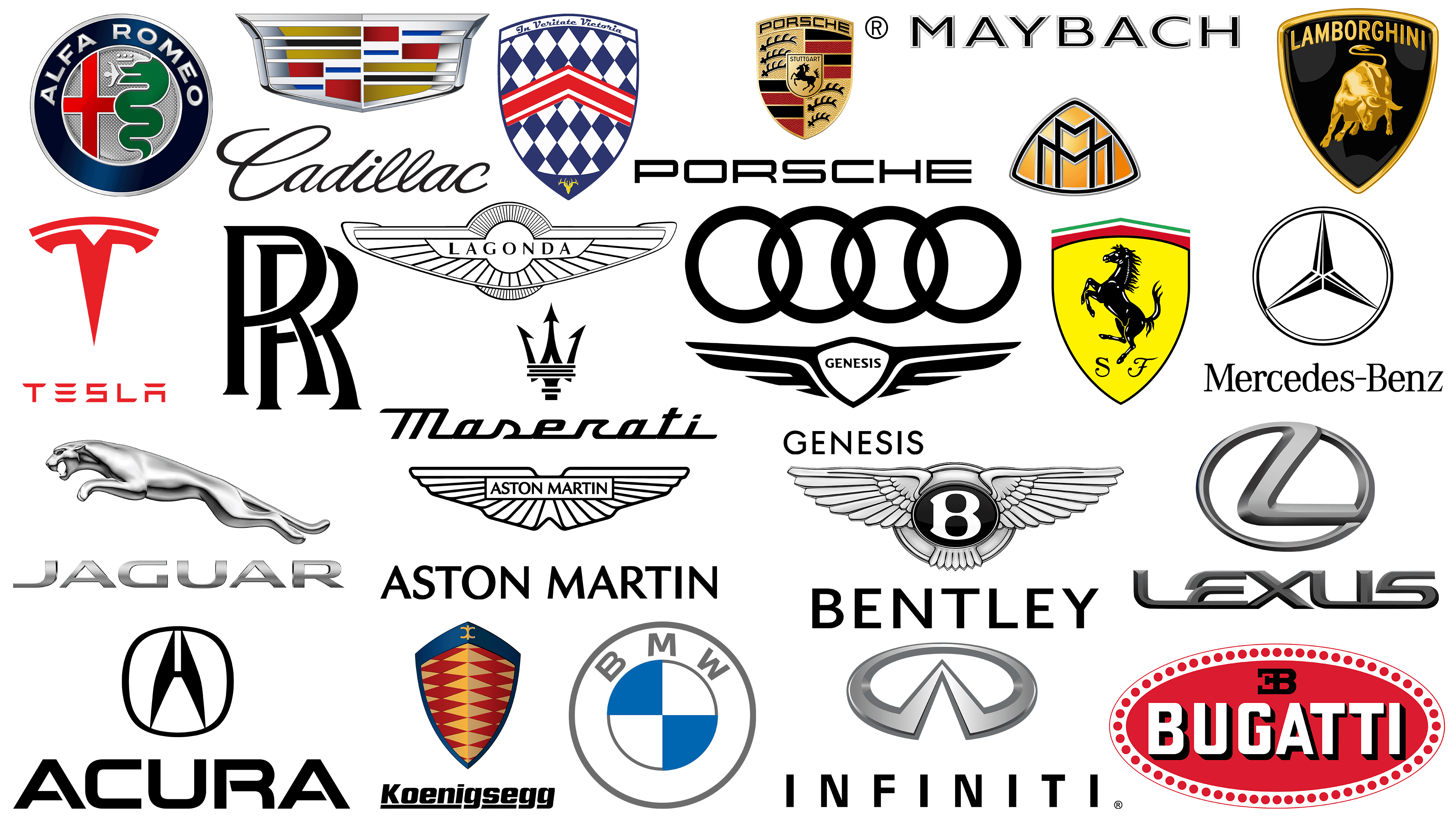
Lexus (Toyota):
- Defining Philosophy: Serene luxury, unparalleled reliability, meticulous craftsmanship, hybrid technology leadership, and "Omotenashi" customer service.
- Signature Models: LS (flagship sedan), ES (mid-size luxury sedan), RX (luxury SUV), LC (luxury coupe).
- Strengths: Consistently top-ranked in reliability and customer satisfaction, refined ride quality, quiet cabins, extensive use of premium materials, strong resale value.
- Focus: Blending traditional luxury with cutting-edge technology and a commitment to environmental responsibility through its extensive hybrid lineup.

-
Acura (Honda):
- Defining Philosophy: Precision Crafted Performance, advanced technology, and distinctive design.
- Signature Models: TLX (sport sedan), MDX (three-row luxury SUV), RDX (compact luxury SUV).
- Strengths: Engaging driving dynamics, innovative all-wheel-drive systems (SH-AWD), high-quality interiors, strong safety features, good value.
- Focus: Appealing to buyers who seek a more engaging driving experience without sacrificing luxury and Honda’s renowned engineering.
-
Infiniti (Nissan):
- Defining Philosophy: Bold design, powerful performance, and advanced driver-assist technologies.
- Signature Models: Q50 (sport sedan), QX60 (mid-size luxury SUV), QX80 (full-size luxury SUV).
- Strengths: Unique and often dramatic styling, potent engine options, comfortable interiors, a focus on innovative features like steer-by-wire technology (though controversial).
- Focus: Targeting consumers who appreciate distinctive aesthetics and a more aggressive luxury persona.
The Rise of Korean Luxury
- Genesis (Hyundai – 2015):
- Defining Philosophy: Athletic elegance, exceptional value, comprehensive concierge-style customer service, and a rapid ascent in prestige.
- Signature Models: G80 (mid-size luxury sedan), GV70 (compact luxury SUV), GV80 (mid-size luxury SUV), G90 (flagship sedan).
- Strengths: Striking and cohesive design language, opulent interiors that rival top European brands, powerful standard engines, segment-leading warranty, and highly personalized ownership experience (e.g., at-home test drives, valet service for maintenance).
- Focus: Directly challenging established luxury brands by offering superior features, design, and service at a highly competitive price point. Genesis has quickly garnered critical acclaim and consumer loyalty.
The New Wave: Chinese Electric Luxury
-
Nio (2014):
- Defining Philosophy: Premium smart electric vehicles with a strong emphasis on user experience, cutting-edge technology, and innovative battery-swapping capabilities.
- Signature Models: ES6, ES8, ET5, ET7 (SUVs and sedans).
- Strengths: Advanced autonomous driving features, luxurious and tech-laden interiors, unique battery-as-a-service (BaaS) model, strong community focus, and a growing network of Nio Houses for owners.
- Focus: Redefining luxury for the EV era, with a strong emphasis on smart features, sustainable mobility, and a comprehensive ecosystem for owners.
-
Xpeng (2014):
- Defining Philosophy: Smart EVs with a focus on advanced driver-assistance systems, intelligent connectivity, and a premium experience.
- Signature Models: P7 (sporty sedan), G9 (luxury SUV).
- Strengths: Highly advanced ADAS (XNGP), integrated infotainment, competitive pricing within the EV luxury segment, rapid over-the-air updates.
- Focus: Blending performance, technology, and luxury for a tech-savvy audience.
-
Hongqi (FAW Group – 1958, modern luxury focus since 2010s):
- Defining Philosophy: China’s national luxury brand, embodying patriotic pride, grand design, and a blend of traditional Chinese aesthetics with modern technology.
- Signature Models: H9 (executive sedan), E-HS9 (electric luxury SUV).
- Strengths: Imposing presence, unique Chinese design elements, spacious and luxurious interiors, advanced features, often favored by government officials and high-net-worth individuals in China.
- Focus: Representing a distinct Chinese vision of luxury, blending heritage with modern aspirations.
Defining Characteristics of Asian Luxury
While each brand possesses its unique identity, several overarching characteristics define the Asian approach to luxury:
- Unrivaled Reliability and Quality: This is perhaps the most enduring hallmark. Asian luxury cars are consistently ranked among the most dependable vehicles on the road, translating to lower ownership costs and greater peace of mind.
- Meticulous Craftsmanship: From the precision of panel gaps to the stitching on the leather, Asian luxury brands pay obsessive attention to detail. Interiors often feature high-quality materials, refined ergonomics, and a sense of thoughtful design.
- Technological Innovation: Asian brands are at the forefront of automotive technology. This includes advanced infotainment systems, sophisticated driver-assistance suites (ADAS), cutting-edge hybrid powertrains, and a rapid embrace of electric vehicle technology, especially from Chinese brands.
- Refined Driving Experience: While some European rivals emphasize raw performance, many Asian luxury cars prioritize a smooth, quiet, and comfortable ride. They excel in creating serene cabins that insulate occupants from the outside world.
- Exceptional Value Proposition: Historically, Asian luxury cars have offered a higher level of standard features and luxury amenities for a given price point compared to their European competitors. Genesis, in particular, continues this tradition.
- Customer-Centric Service: Brands like Lexus and Genesis have set new benchmarks for customer service, offering personalized attention, convenient maintenance options, and an overall ownership experience designed to minimize hassle and maximize satisfaction.
- Distinct Design Language: Moving beyond earlier perceptions of being derivative, Asian luxury brands now boast strong, unique design identities. From Lexus’s "spindle grille" to Genesis’s "Two Lines" motif and Hongqi’s imposing presence, these vehicles are instantly recognizable.
The Global Impact and Future Outlook
Asian luxury car brands have successfully carved out a significant share of the global premium market. They’ve forced established European players to innovate and improve their own offerings, leading to a more competitive and diverse luxury segment.
However, challenges remain. Building brand prestige and emotional appeal, which often comes with decades of heritage, is a continuous process. The transition to an all-electric future also presents both opportunities and hurdles, especially for legacy brands. Chinese luxury EV brands, unburdened by internal combustion legacies, are rapidly innovating and gaining traction, particularly in their domestic market, and are now looking to expand globally.
Choosing Your Asian Luxury Car: Practical Advice
When considering an Asian luxury vehicle, keep the following in mind:
- Define Your Priorities: Do you value reliability and quiet comfort above all else (Lexus)? Are performance and tech paramount (Acura, Genesis)? Or are you looking for cutting-edge EV innovation and smart features (Nio, Xpeng)?
- Test Drive Extensively: Experience the unique driving dynamics and interior ambiance of different brands and models.
- Consider the Ownership Experience: Research warranties, service programs (e.g., Genesis at-home valet), and dealership reputation. Asian brands often excel here.
- Evaluate Technology Needs: Assess infotainment systems, ADAS features, and connectivity options.
- Budget and Value: While luxury, these brands often offer strong value for money. Factor in not just the purchase price but also predicted reliability and resale value.
- Resale Value: Lexus and Acura typically hold their value very well, a testament to their reliability and desirability. Genesis is quickly building a strong reputation in this regard.
Benefits of Owning an Asian Luxury Car
- Peace of Mind: Exceptional reliability means fewer unexpected repairs and breakdowns.
- Refined Comfort: Smooth rides, quiet cabins, and high-quality interiors make for a pleasant driving and riding experience.
- Advanced Technology: Access to the latest safety, convenience, and infotainment features.
- Strong Value: Often more features and luxury for your money compared to direct European rivals.
- Excellent Customer Service: Many brands offer a superior ownership experience, from purchase to maintenance.
- Distinct Identity: Own a vehicle that stands out for its unique blend of attributes, rather than just its badge.
Representative Starting Price Ranges for Key Asian Luxury Models
Please note: Prices are approximate starting MSRPs for base models in the US market as of late 2023/early 2024. Actual prices vary significantly based on trim level, options, region, taxes, and market conditions. These are provided for general comparison.
| Brand | Model | Type | Starting MSRP Range (USD) | Key Differentiating Features |
|---|---|---|---|---|
| Lexus | ES 350 | Mid-size Sedan | $43,000 – $55,000 | Serene ride, reliability, hybrid options, luxury comfort |
| RX 350 | Mid-size SUV | $49,000 – $65,000 | Bestselling luxury SUV, refined, hybrid options | |
| LS 500 | Flagship Sedan | $80,000 – $115,000 | Ultra-luxurious, quiet, sophisticated design, V6 twin-turbo | |
| Acura | TLX | Sport Sedan | $45,000 – $55,000 | SH-AWD, sporty handling, tech-focused interior |
| MDX | 3-row SUV | $50,000 – $70,000 | Practicality, sporty dynamics, ample tech, SH-AWD | |
| Infiniti | QX60 | Mid-size SUV | $51,000 – $68,000 | Bold design, comfortable 3-row seating, luxury interior |
| Q50 | Sport Sedan | $43,000 – $55,000 | Powerful twin-turbo V6, distinctive styling | |
| Genesis | GV70 | Compact SUV | $45,000 – $65,000 | Striking design, opulent interior, great value, strong performance |
| G80 | Mid-size Sedan | $55,000 – $75,000 | Elegant design, smooth ride, luxurious cabin, advanced tech | |
| G90 | Flagship Sedan | $89,000 – $100,000 | Ultra-luxury, rear-seat comfort, concierge services | |
| Nio | ET7 (EV) | Luxury Sedan | $70,000 – $90,000 (est.)* | Battery swap tech, advanced ADAS, luxurious smart cabin |
| ES8 (EV) | Full-size SUV | $65,000 – $85,000 (est.)* | 7-seater EV, Nomi AI assistant, premium experience | |
| Xpeng | P7 (EV) | Sporty Sedan | $45,000 – $60,000 (est.)* | High-tech ADAS, sleek design, competitive range |
| G9 (EV) | Luxury SUV | $55,000 – $75,000 (est.)* | Fast charging, advanced connectivity, spacious interior | |
| Hongqi | H9 | Executive Sedan | $60,000 – $80,000 (est.)* | Grand styling, patriotic appeal, opulent rear seats |
| E-HS9 (EV) | Full-size SUV | $80,000 – $110,000 (est.)* | Imposing presence, electric powertrain, luxury amenities |
*Note on Chinese EV pricing: Prices for Nio, Xpeng, and Hongqi are highly dependent on the market (primarily China, but also expanding to Europe) and battery configurations (e.g., BaaS vs. battery purchase). These are rough estimates for general comparison and may not reflect specific market offerings or current exchange rates accurately.
Frequently Asked Questions (FAQ) about Asian Luxury Car Brands
Q1: Are Asian luxury cars as prestigious as European brands?
A1: While European brands often have a longer heritage, Asian luxury brands like Lexus and Genesis have rapidly built immense prestige through their commitment to quality, reliability, design, and customer service. They offer a distinct form of modern luxury that many discerning buyers now prefer. Chinese brands are also quickly building their own unique prestige, especially in the EV segment.
Q2: Are Asian luxury cars more reliable than European luxury cars?
A2: Generally, yes. Lexus, in particular, consistently ranks at the top for reliability in various consumer surveys globally. Acura and Genesis also perform exceptionally well. This focus on long-term durability and fewer issues is a core strength of Asian luxury.
Q3: Do Asian luxury cars hold their value well?
A3: Yes, brands like Lexus and Acura are known for excellent resale values, often outperforming many European rivals due to their strong reputation for reliability and quality. Genesis is also quickly establishing a strong resale value.
Q4: What’s the main difference between Japanese and Korean luxury brands?
A4: Japanese brands (Lexus, Acura, Infiniti) established their luxury presence earlier, focusing on refined reliability and meticulous craftsmanship. Lexus emphasizes quiet comfort and hybrid tech, while Acura and Infiniti lean towards performance and distinctive design. Korean luxury (Genesis) is a more recent entrant, aggressively challenging the status quo with bold design, exceptional value, and a concierge-level customer experience, often at a lower price point than competitors.
Q5: Should I consider a Chinese luxury EV like Nio or Xpeng?
A5: Absolutely, especially if you are an early adopter of technology and interested in electric vehicles. Chinese luxury EVs are at the forefront of smart features, autonomous driving tech, and innovative ownership models (like Nio’s battery swapping). They offer a compelling blend of luxury, performance, and cutting-edge tech, though their global availability and service networks are still developing compared to established brands.
Q6: Are maintenance costs lower for Asian luxury cars?
A6: Due to their superior reliability, Asian luxury cars often have lower unscheduled maintenance and repair costs compared to their European counterparts. Routine servicing costs are generally competitive.
Conclusion
The evolution of Asian luxury car brands represents a remarkable shift in the automotive industry. From their humble beginnings challenging the established order, these brands have matured into formidable contenders, offering a compelling vision of modern luxury. They have redefined what it means to own a premium vehicle, emphasizing not just prestige and performance, but also unwavering reliability, thoughtful technology, and an exceptional ownership experience.
Whether you prioritize serene comfort and bulletproof dependability from Lexus, precision-crafted performance from Acura, bold design from Infiniti, the incredible value and athletic elegance of Genesis, or the cutting-edge electric innovation from Nio and Xpeng, Asian luxury brands offer a diverse and sophisticated array of choices. They stand as a testament to meticulous engineering, customer-centric philosophy, and a relentless pursuit of excellence, solidifying their place as a vital and growing force in the global luxury automotive market.

